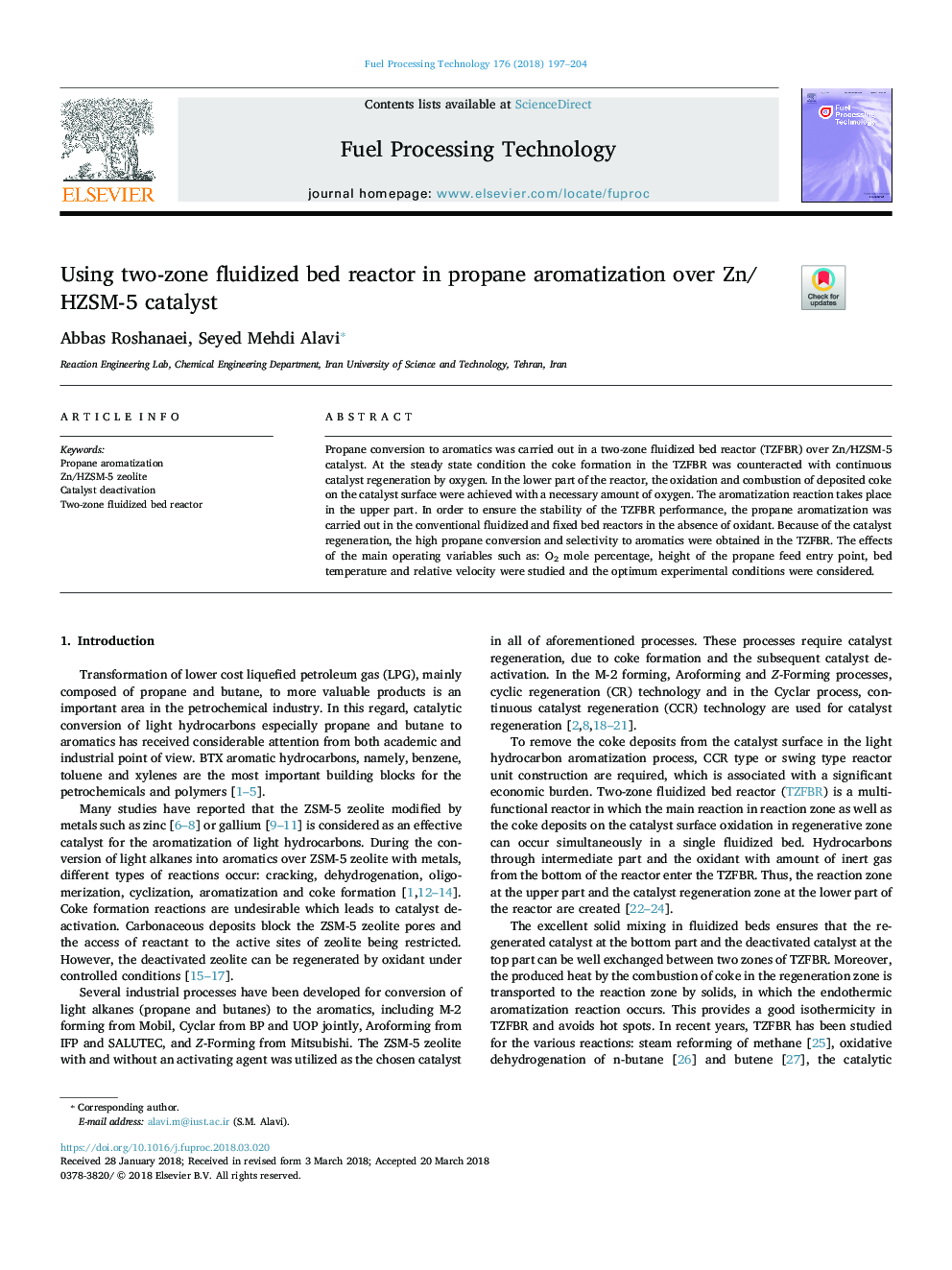| Article ID | Journal | Published Year | Pages | File Type |
|---|---|---|---|---|
| 6656370 | Fuel Processing Technology | 2018 | 8 Pages |
Abstract
Propane conversion to aromatics was carried out in a two-zone fluidized bed reactor (TZFBR) over Zn/HZSM-5 catalyst. At the steady state condition the coke formation in the TZFBR was counteracted with continuous catalyst regeneration by oxygen. In the lower part of the reactor, the oxidation and combustion of deposited coke on the catalyst surface were achieved with a necessary amount of oxygen. The aromatization reaction takes place in the upper part. In order to ensure the stability of the TZFBR performance, the propane aromatization was carried out in the conventional fluidized and fixed bed reactors in the absence of oxidant. Because of the catalyst regeneration, the high propane conversion and selectivity to aromatics were obtained in the TZFBR. The effects of the main operating variables such as: O2 mole percentage, height of the propane feed entry point, bed temperature and relative velocity were studied and the optimum experimental conditions were considered.
Related Topics
Physical Sciences and Engineering
Chemical Engineering
Chemical Engineering (General)
Authors
Abbas Roshanaei, Seyed Mehdi Alavi,
